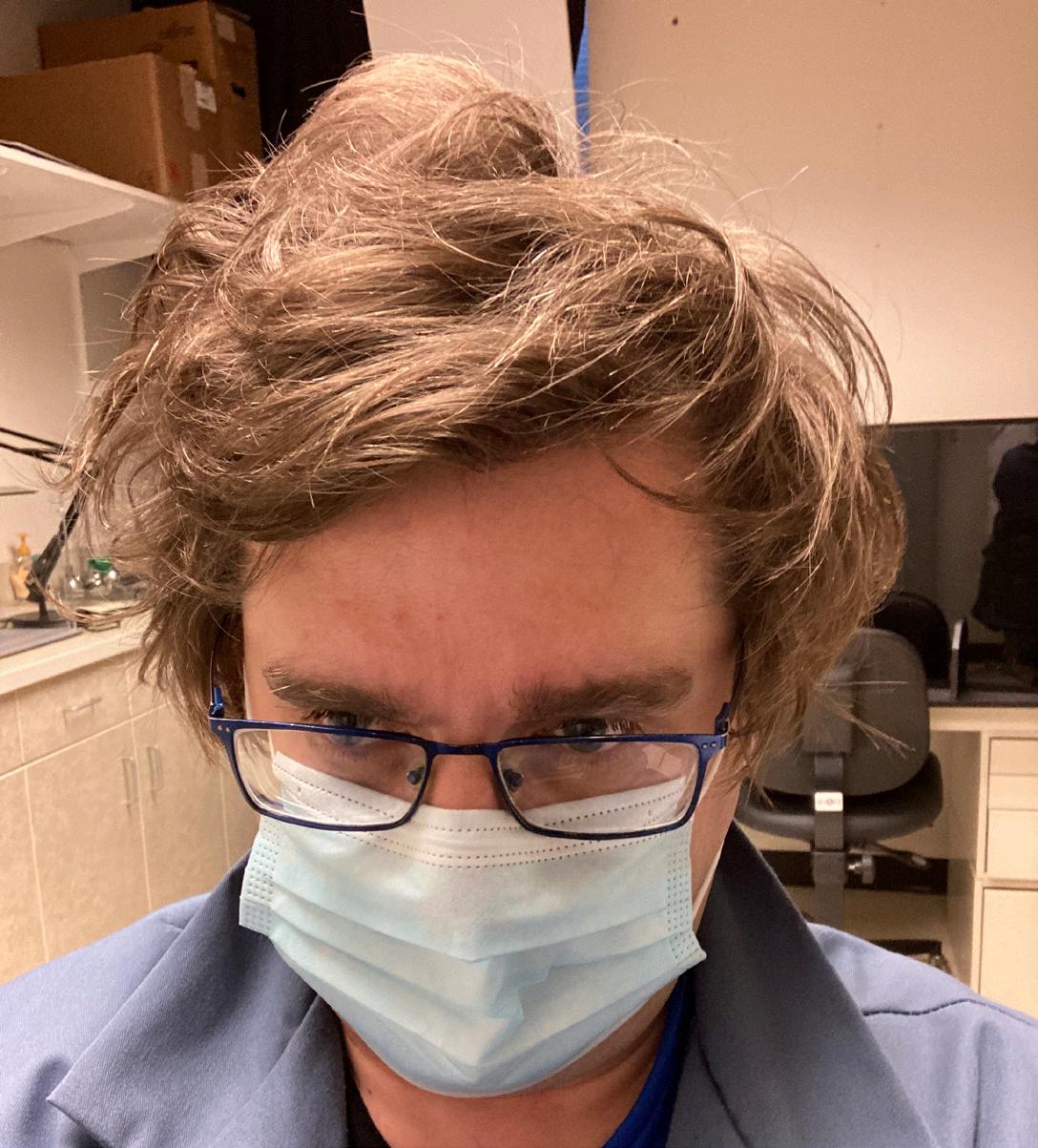
2 minute read
Biology Course FEATURE
Biology Upper-Elective Neurogenetics & Behavior with Dr. Andrey Rudenko
PTSD) and neurocognitive (e.g., Alzheimer’s disease, frontotemporal dementia) disorders and the most current treatment strategies. As one can see, some parts of the course are mostly basic science-related, while the others deal with translational and clinical aspects – both parts are critical for our understanding how brain regulates behavior.
Advertisement
2. What inspired you to teach the material?
1. What is the course about?
This course covers a variety of topics in a “neurons, circuits, and behavior” field. The overall idea is to learn about brain mechanisms critical for cognitive and emotional regulation as well as neuropsychiatric conditions related to disruption of such mechanisms. One of the central features of the course is its multidimensionality: the brain functions and disfunctions will be examined at the molecular, genetic, epigenetic, neuronal, circuitry-based, and behavioral levels aiming at in-depth understanding of the subject. Because of such approach, the course topics range from structural and functional genetics/epigenetics of the human brain, to model organisms widely utilized in laboratory neuroscience (Drosophila, mouse), to molecular pathways underlying emotional and cognitive regulation, to the cutting-edge experimental tools in the brain & behavior field (e.g., optogenetics, neurogenome engineering), to the mechanisms of neuropsychiatric (e.g., schizophrenia;
I would say that the main inspiration for the ”Neurogenetics & Behavior” course came from two sources. One is the incredible speed and scope of the recent progress in the field of “brain & behavior”. From the development of extremely sophisticated and efficient transgenic and genome engineering methods, to emergence of the whole novel research areas, such as neuroepigenetics, optogenetics, chemogenetics, to invention of super-resolution microscopy, development of non-invasive transcranial brain stimulation techniques, and the list goes on. As a result, right now we have a vast amount of new data as well as methodologies that have been revolutionizing both basic and clinical neuroscience. So, we have to learn about those! The second source of inspiration are the Neurobiology & Behavior classes I have attended at Harvard and MIT during my postdoctoral fellowship. In addition to being extremely accomplished researchers, the professors teaching those courses were amazing lecturers. They pretty much exemplified how neurobiology should be thought about as well as explained to others. So, here is an obvious source of my classroom inspiration and motivation – “guidance on” what to teach and how to teach.
3. What do you hope your students take away from the class?
If we are talking about specific learning objectives, I hope that upon taking this course, the students will be able to: 1. Explain the basic features of neuronal genomes and epigenomes; explain molecular and functional differences between different types of neurons; 2. Describe classical as well as cutting-edge experimental tools utilized in neurobehavioral research and explain their specific value in neurobehavioral studies; 4. Explain the basic molecular, genetic, and circuit mechanisms of learning and memory in a healthy brain; 5. Explain how disruption of memory mechanisms may lead to neurocognitive disorders (e.g., Alzheimer’s disease); 7. Describe current theories regarding molecular and genetic underpinnings of psychotic disorders (e.g., schizophrenia);
8. Describe current theories regarding molecular and genetic basis of autism-spectrum disorders; 9. Explain how disruption of specific molecular mechanisms may lead to trauma/stressor-related conditions, such a PTSD;
10. Describe current theories regarding molecular and genetic mechanisms of substance-use disorders.
In addition to learning and being able to explain the above-mentioned topics, I expect students to read considerable amount of primary scientific literature, which should help to improve their skills in analyzing research findings, developing and testing hypotheses, designing proper control experiments, and, obviously, generating their own ideas about the scientific questions and experimental ways to answer them.
Finally, if this course manages to convince the students that 1. critical thinking is a must in science/research; 2. understanding is more important that memorizing; 3. concepts are more important than details - I would be quite happy.










